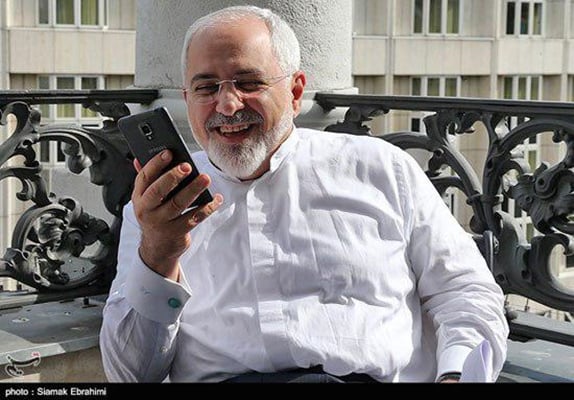Elaborating on a project to produce new cell phones for the Iranian officials, the general said after President Rouhani cell phone was tapped, efforts have begun to design and produce new cell phones resilient against any type of eavesdropping but the project is not complete yet.
“We usually don’t take passive defence seriously because it is too routine, but we must be aware that it is a highly complicated issue with serious consequences,” he said in an interview with the IRIB News Agency.
General Jalali said external threats fall into two categories of natural and unnatural, explaining that the natural threats like floods and quake originate in the nature, and the enemies have no role in them.
“But unnatural threats mainly originate in the new technologies and technical knowledge. Human elements can play a key role in such threats and they change from one era to another one,” he said.
According to the commander, the organizations facing more serious threats in Iran take passive defence more seriously.
The commander added based on what stipulated in the Fifth and Sixth Development Plan, all new projects should include passive defence elements. “It goes without saying that there are some organizations which bypass the law and don’t implement passive defence projects.”
He then referred to the state TV and said once the Islamic Republic was heavily dependent on satellites and any clinches in this area could put the organization into serious troubles.
“The Islamic Republic of Iran Broadcasting (IRIB) ran into trouble two times amid the sanctions. That’s why it decided to overcome the problems and turn to passive defence. So, we signed a contract with the IRIB and began to give it a 95-percent coverage without relying on international satellites.”
For a brief review of Iran’s achievements in various fields of science and technology, check the book “Science and Technology in Iran: A Brief Review”
“In line with other threats, the Islamic Republic has also come under economic sanctions targeting its monetary, financial, banking and trade infrastructures. These are some non-military threats at national and international level which can inflict a heavy blow on our country but Iran enjoys a high resilient defence layer,” he said.
Jalali then referred to some combined threats against the Islamic Republic and added this type of threats could take the form of psychological wars like media campaign in virtual space. “Another part of the threat could be revealed in the form of content and message aimed at manipulating the audience’s thoughts. To this end, social media are taken vert seriously particularly by the western states.”
According to the commander, the Passive Defence Organization is seeking to foil the enemies’ plots aimed at making divisions in the Iranian society by adopting some preemptive measures. “Such measures are mainly aimed at restoring peace in the domestic areas paving the way for further national unity.”
He then referred to rumours about the US’ possible cutting of Iran’s access to the Internet, saying the issue is mainly raised by foreign powers posing it as a threat against the Islamic Republic. “Of course we should not undermine the capabilities of western states like the US to restrict internet connection for Iranians.”
He stressed that Tehran can bypass certain sanctions in various areas like banking, and turn the threats in the field into opportunities.
“The main problem that we face is that the US dollar has the final authority in today’s banking and the US takes advantages of the current situation using dollar as a leverage to exert pressure on others by restricting access to SWIFT. We should decrease our reliance on the US dollar and replace it with other currencies,” he noted.
